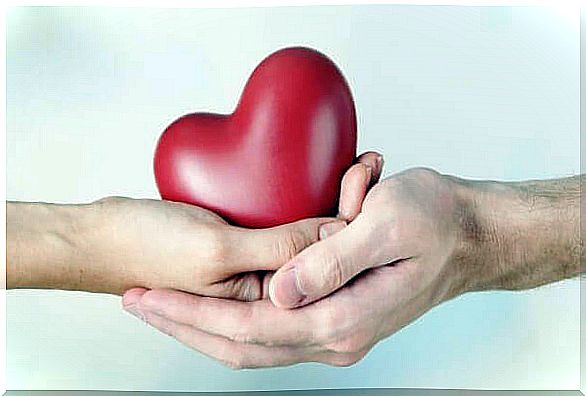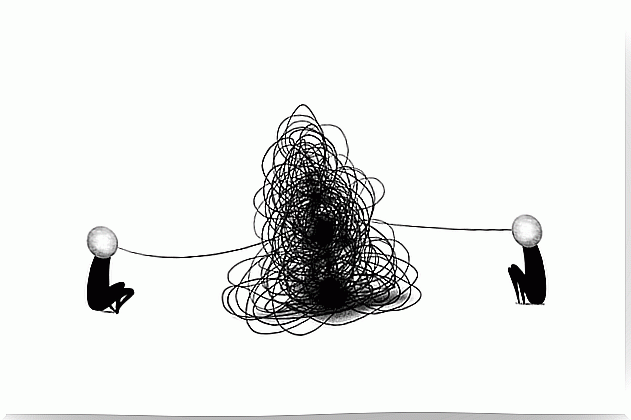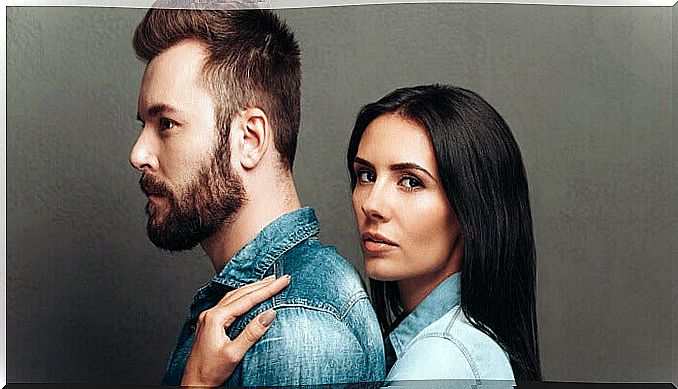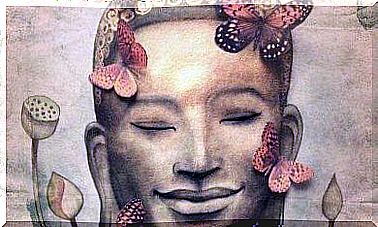Givers And Recipients In Affective Relationships

In affective relationships there is rarely a perfect balance between giving and receiving. It is common to see the classic givers and receivers immersed in a power game in which only one person wins. The recipient gets the energy, vitality and all the affective investment of a giver convinced that there are no limits in love, that in this story of loving anything goes.
Although the term seems strange to us, when it comes to relationship and affection it is common to witness true emotional suicides. It is curious to see how there are people who drive prudently on the road, who take care of their food or who are concerned about playing sports and leading an active life, but when it comes to love they do not hesitate to throw themselves into the void without a parachute.
In terms of relationships, not everything goes. It’s good to remember that. Making the other our raison d’être and being for that person everything he or she may need, want or ask for, has serious consequences. Givers and receivers are out there in droves in any affective bond. They are people who are incapable of achieving an adequate balance between giving and receiving and who, moreover, fall into the most harmful extremes to health, where real happiness rarely germinates.

The cycle of reciprocity as a key to well-being
Friedrich Nietzsche has already said that offering a gift does not confer any rights or obligations on the recipient. We can agree with this statement, however, whether we like it or not, there are always small “nuances”. Gifts are exchanges that imply a certain reciprocity, bringing together givers and receivers in many ways.
For example, I can give a friend a material gift. I don’t expect (nor do I want) him to return it to me. I only offer this gift because I want to pay tribute to the affection, support and positivity that this person transmits to me in my life. In other words, there is already reciprocity between us, there is already a bond that unites us, a bond that represents this dynamic and proactive balance in which we both win.
Like it or not, we need this constant feedback loop in which giving and receiving become the same thing, in which we are all givers and receivers at the same time. This happens for a very simple reason: human beings are cooperative by nature. In fact, cooperating has allowed us to progress as a species by knowing how to be loved, cared for, valued, and even protected. At the same time, these behaviors give our brain a clear sense of belonging and well-being.

What happens when there is no reciprocity and I just become a “giver”?
There is a very interesting work called “Autonomous motivation of prosocial behavior and its influence on the well-being of both helpers and recipients” (free translation), published in the 2010 magazine Personalidad y Psicología social , which highlights very curious data.
- There are people who are “givers” by nature. In other words, the act of giving is part of their personality and this is how they understand the dynamics of their relationships.
- The fact of “giving” (giving attention, affection, caring, etc.) gives them more self-esteem and a feeling of positivity, energy and personal dignity.
- However, in this type of situation, two things can happen. The first is that other people (the recipients) feel pressured and even uncomfortable with this constant behavior of helping, doing favors, sacrificing for others.
- The second is evident. Sooner or later the phenomenon known as “sunk costs” will emerge. In other words, the donor may find himself in the situation of discovering that many of his actions are not valued or recognized. Everything she invested, time, affection and energy will never be recovered. She will think that it didn’t make sense and that what she got out of it was to lose her self-esteem…
When a person realizes that in their affective relationship they were limited to being the donor, they become aware of this emotional suicide, which was to maintain an unequal, unhealthy and self-serving bond. After this discovery, there is no going back. It is necessary to make decisions and become the giver of oneself, one who will heal one’s lost dignity.
Donors and recipients, two constant figures in our relationships
Ana and Paulo have been together for 8 months. Ana is the “giver” who does everything for her partner. You know incredible details about him. She likes to be always ahead and predict what he might need, what he might like at any given time. Paulo, in turn, “let go”. As he sees his partner happy practicing this type of behavior, he began to show a more or less passive and even dependent attitude.

This is a small example of what can happen very often in our relationships and how, little by little, we shape givers and recipients. Sometimes we ourselves stimulate a series of dynamics that later crystallize in dysfunctional situations . Therefore, it is not a question of looking for the culprits, but of understanding a few things:
- We can allow either of you to “invest” a little more in the relationship at any given time. However, this will not be the rhythm, much less the rule. What’s more, a clear responsibility for both members of the couple is to commit equally to the relationship. So the costs and benefits must be similar for both.
- We deserve to receive. Sometimes there are people who have spent so much time being “givers” that they don’t know what it’s like to be a receiver every now and then. The same goes for the opposite. Those who have spent half a lifetime getting attention can experience a satisfying feeling when they discover the meaning of giving and giving from the heart.
Finally, an interesting thing to think about in relation to givers in relationships is that we shouldn’t obsess about the classic 50/50 either. In other words, looking for that perfect and millimetric balance of investments and gains in a relationship . People give in very different ways and at different times.
The important thing is to know that there is reciprocity. Knowing that that person is by our side and that what is offered from the heart is welcomed and given back when we need it most.









